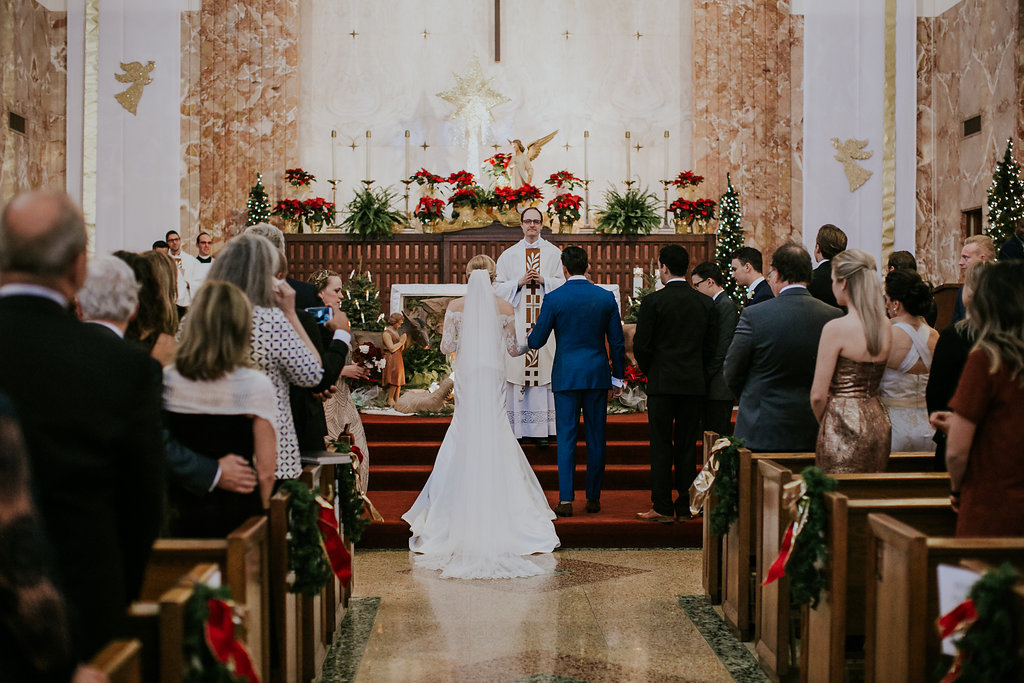Writing Heartfelt Thank You Notes (with Scripts for Catholic Brides)
/HANNAH HOLLCRAFT
A well written thank you note is an act of love. It expresses gratitude and thoughtfulness
PHOTOGRAPHY AND STATIONERY: HUDSON & PRESS
It takes time and effort to write individual thank you cards for your wedding and bridal shower, but this gesture can express your gratitude and thoughtfulness in a truly unique way.
Plus, sending a thank you note after your wedding allows you to share your new address with friends and family.
Your guests will appreciate the warmth and personal touch a thank you note brings.
Here are some scripts you can use for inspiration to make your own heartfelt thank you notes:
Dear (Name),
Thank you for coming to my bridal shower this Summer. I loved getting the chance to celebrate and visit with you. Thank you for the (name of gift). It was very thoughtful of you and I am excited to (way you will use the gift). (Fiance’s name) and I are blessed to have your support as we get ready to enter the Sacrament of Marriage. Please keep us in your prayers. We can’t wait to celebrate with you on (Wedding Date).
Gratefully, The Future Mrs. (Last)
Dear (Name),
Thank you for coming to celebrate our wedding day with us! We were honored to have you there to support us as we entered the Sacrament of Marriage. It was such a joyful day for us and it wouldn’t have been the same without so many amazing friends and family surrounding us. Thank you for the (name of gift). (Husband’s name) and I cannot wait to (way you will use the gift). We are so blessed to have you in our lives, thank you for your generosity.
In Christ, Mr. and Mrs. (Last Name)
Dear (Name),
Thank you for the (name of gift) you sent us to celebrate our wedding. We are very grateful. We already (way you have used the gift). We missed being able to celebrate with you in person but (husband’s name) and felt your love even from far away. We promise to send you lots of photos. Thank you again and warm wishes to your family!
With Love, Mr. and Mrs. (Last Name)
Include any personal/relevant details to make a thank you note extra special:
“We were touched that you traveled all the way from ... to celebrate with us.”
“It was great to hear about…”
“We can’t wait to see you and your family again at…”
“Your children are getting so grown up we were overjoyed to see them again.”
“Congratulations on…”
If someone did something particular to help out at the wedding or shower be sure to mention it by name:
“Thank you for baking the cookies, they were delicious!”
“We were so grateful to borrow the venue decorations you lent us.”
“Thank you for being there to help us set up the tables for the reception. We couldn’t have done it without you.”
When someone gives you a money or gift card try to be specific about how you will use it:
“Thank you for the gift card to Target. We will use it to buy bath towels for our new home.” “Thank you for the generous $50 you gave us. We will be using it as we travel to (location) for our honeymoon.”
“Thank you for donating to our wedding fund. Thanks to you we were able to hire the photographer we wanted even though they were a little out of our initial price range. We will treasure our wedding photos for a long time to come.”
Finally, don’t forget to write thank you notes for the most important people in your lives. Parents, Bridesmaids, new In-Laws, Grandparents, and Siblings will all appreciate a handwritten note expressing your gratitude:
“Thank you for being my Maid of Honor. I cannot express how grateful I am that you were beside me as I entered my new vocation. Your friendship is such a gift.”
“Mom and Dad thank you for every little and big thing you did to help with my wedding. I know you made so many sacrifices to get me to this place in my life and I am so very grateful. Thank you for the woman you raised me to be and the way that you’ve always been there to love and support me.”
“Grandma, thank you so much for all the love and kindness you’ve always shown me. Thank you especially for coming with Mom and I when we picked out my wedding dress. It was so special to have you there with me on such a special day.”
About the Author: Hannah lives in Northern California with her husband Joshua and their daughter. She studied Theology and Business in school and has worked in ministry since graduating. Hannah’s Catholic faith is rooted in a deep love for the Eucharist and Our Blessed Mother. She is passionate about beauty, adventure, and living abundantly. Hannah loves warm weather, gardening, a good dance party and hiking in the mountains or visiting the ocean with her husband.








































